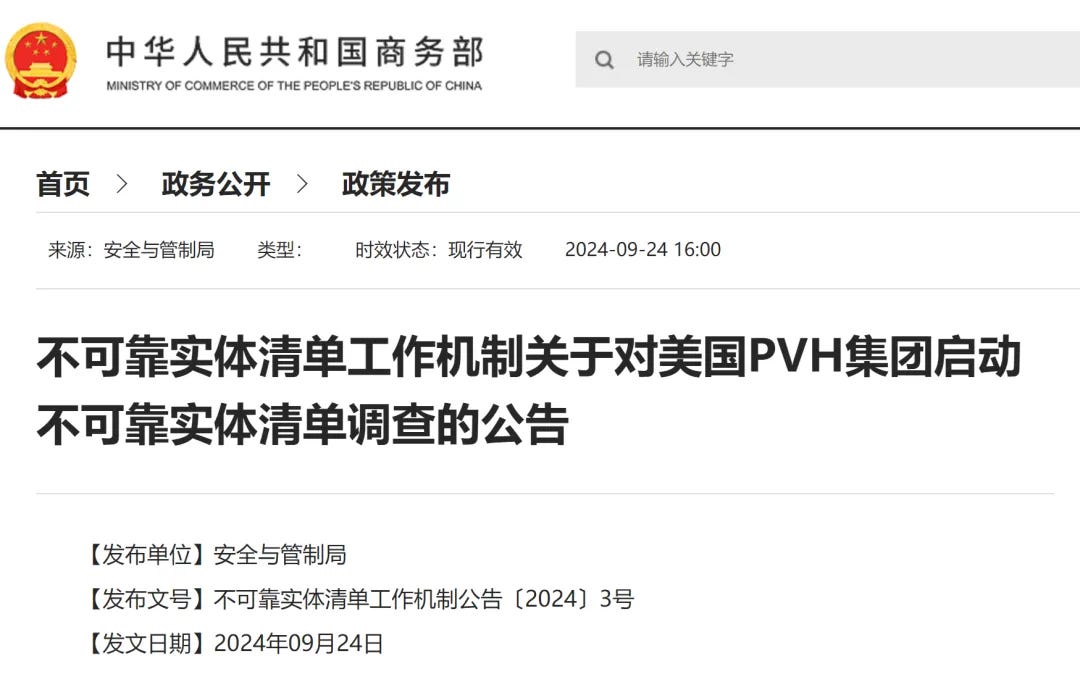Implications of China's Probe into Calvin Klein and Tommy Hilfiger Parent Firm Over Xinjiang Cotton
The Chinese Ministry of Commerce today announced the initiation of an investigation into the U.S. company PVH Group for inclusion on the Unreliable Entity List. PVH Group, which owns well-known brands such as Calvin Klein and Tommy Hilfiger, drew widespread attention with this announcement.
According to the response from the head of the MOFCOM's Bureau of Security and Control to reporters' questions, this investigation was initiated because "relevant agencies" submitted "recommendations and reports" to the Unreliable Entity List Working Mechanism and alleged that PVH Group is suspected of, without factual basis, violating normal market transaction principles by unjustly boycotting Xinjiang cotton and other products, severely damaging the legitimate rights and interests of certain Chinese enterprises and endangering China’s sovereignty, security, and development interests.
PVH Group is a leading global clothing retailer, and its inclusion in this investigation has garnered significant interest. The company was mentioned in a 2020 report by the Australian Strategic Policy Institute, which identified several businesses allegedly benefiting from labor violations in Xinjiang. However, in its July 2022 corporate responsibility report, PVH stated that it prohibits sourcing, directly or indirectly, from Xinjiang.
Notably, the justification for these sanctions is: “PVH Group is suspected of violating normal market transaction principles regarding Xinjiang-related products, disrupting normal trade with Chinese companies, other organizations, or individuals, and taking discriminatory actions.”
In the history of China's foreign sanctions, this appears unusual. When China has previously employed sanctions tools such as the Anti-Foreign Sanctions Law or the Unreliable Entity List, it has aimed to protect "sovereignty and territorial integrity," mostly focusing on improper actions related to Taiwan or entities supporting “Tibetan independence.” For example, the first use of the Unreliable Entity List in February 2023 targeted two U.S. defense manufacturers—Raytheon Technologies and Lockheed Martin—due to their involvement in arms sales to Taiwan. According to the Chinese MOFCOM's statement, Raytheon and Lockheed Martin were listed because of their participation in activities that "harm China's sovereignty, security, and development interests."



